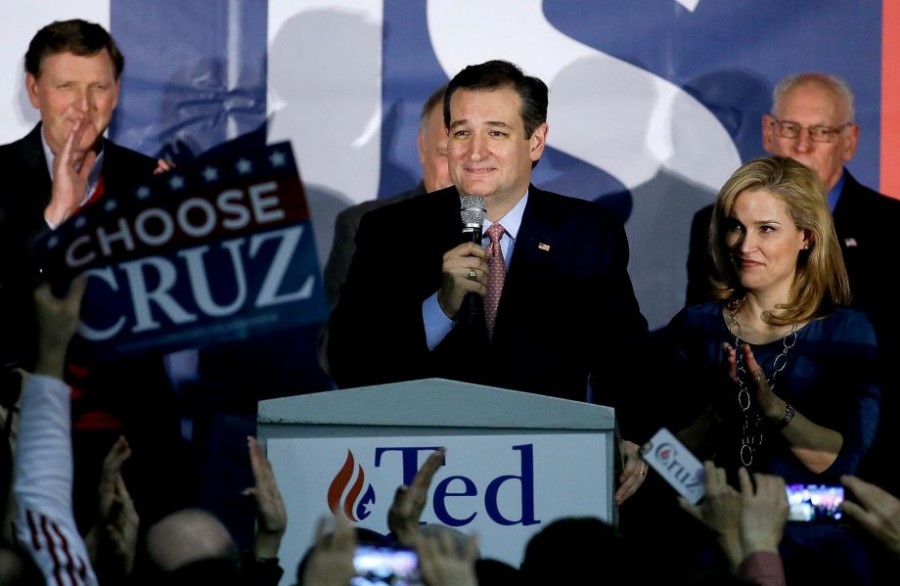The Iowa Caucas
Cruz dominates Trump and Clinton barely clinches the victory
February 5, 2016
On February 1, 2016 the Iowa voters spoke. With that, the primary presidential candidates fled from the state and on to the next stop, New Hampshire. The winners of the first vote were Ted Cruz on the Republican side and on the Democratic side, Hillary Clinton just barely clinched the victory.
The Iowa caucus had the potential to make or break many campaigns. In some cases, it broke campaigns, Mike Huckabee and Rand Paul have both decided to suspend their presidential campaigns. For Donald Trump, the loss is a potential setback for the character who boasts that he is a winner and can make America a winner. However, the loss could also cause his energetic support to come out stronger in the next polls. For Marco Rubio, who came in a very close third, his candidacy still has strong potential to receive the nomination. The New Hampshire primary will most likely end more in Rubio’s favor and revitalize his campaign setting him on more equal footing as Cruz and a little below Trump.
The win for Cruz, however, is huge. While a loss would not have put an end to his campaign, the win has certainly validated his candidacy. Although, Cruz’s win is not a huge surprise. While Trump tried very hard to get first time voters out to the polls, it ended up not really working in his favor. While many did vote for Trump, almost an equal amount of first time voters voted for Cruz. Cruz also capitalized on the large amount of Evangelical’s in Iowa, which make up about 64% of Iowa’s GOP. The New Hampshire GOP is not quite so strongly religious or conservative which is a prospective problem for Cruz and a probable win for Rubio. Ultimately, of the 30 delegates the Republican National Committee will send to the convention, Cruz will have eight delegates, Trump will have seven, and Rubio will have seven as well.
For the Democrats, the results were quite historic. In the polls, Clinton and Sanders were fractions of percentages away from each other. Clinton won over the older voters, who were about 60% of democratic voters and Sanders benefitted from the very liberal voters, 28% of democratic Iowa voters. While the results were considered a “virtual tie,” Clinton ended up with one more delegate than Sanders by way of a coin toss. Yes, literally, a coin toss is how a tie is broken in this process. However, in the next primary caucus, New Hampshire, Sanders is predicted to have a considerable lead being New Hampshire is the neighbor of his home state, Vermont.
While these primary voting process is not particularly complex, it is not as simple as voting in the general. Keep in mind, voters are voting for delegates who will vote at the convention for a particularly candidate. While these early caucus’ can often be early predictors of the potential nominee, the extreme closeness of these results on both sides says volumes about the future nominee, we are not 100% positive who it could be.






